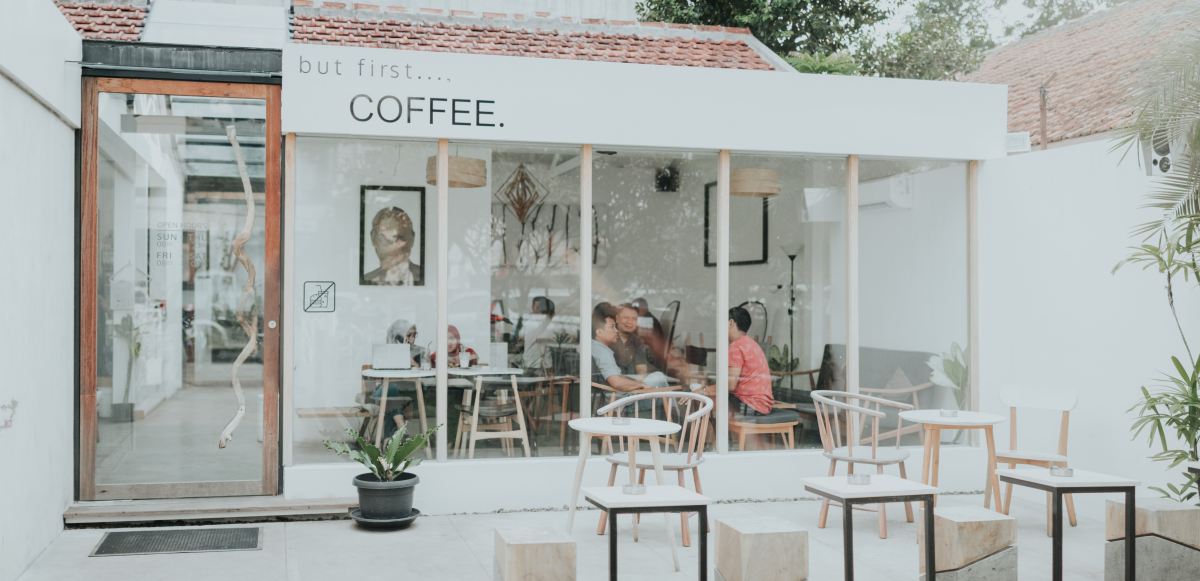The high-quality "third coffee wave" capital market has entered the coffee industry.

Professional coffee knowledge exchange more coffee bean information please follow the coffee workshop (Wechat official account cafe_style)
The boutique "third Coffee Wave" broke a static market, but it was quickly picked up by capital.
What broke the static market was a movement known as the "third Coffee Wave", which sprang up in the United States around 2003. Coffee consumers who are baptized by this wave not only need to easily tell the difference between a cappuccino and a latte, but also know how to distinguish between Philharmonic pressure, handcups, Vmur60, and iced coffee.
Led by boutique coffee shops such as Blue Bottle, Intelligentsia Coffee, Stumptown and Philz, people are trying to learn more about the origins of coffee making. At the heart of the third wave of coffee is baristas, emphasizing origin, using lightly roasted beans to retain the freshest flavor.
Coffee has long been considered a healthy drink, and when Starbucks coffee caused cancer, nutritionists explained that "drinking more coffee helps reduce the risk of breast, stomach and liver cancer." Coffee is a drink that caters to the health trend of the middle class in recent years, and the combination of boutique coffee and a good lifestyle is also in line with the taste of this group.
Euromonitor estimates that the global coffee market has grown at a compound rate of 5.5% over the past five years. Coffee is not only healthy, but also cheaper than other healthy drinks (such as cold-pressed fruit juices and craft beer). It doesn't have such a short shelf life and has mature store channels. The emergence of the third coffee wave will make the future division of labor more clear in this industry with many roles.
At the same time, the beverage giants have become the scourge of sugar water companies and the world. Pepsi and Coca-Cola are in a hurry to transform. Coca-Cola owns Georgia Coffee, a ready-to-drink coffee brand worth more than $1 billion, which was launched in Japan in 1975 and has suddenly become what analysts call the "dark horse of the coffee market." "I don't think he (Coca-Cola) has a 100% clear coffee strategy, but he has the most powerful distribution system in the world," Jim Watson, a senior beverage analyst at Rabobank, said in a report.
In this context, small companies are easily targeted by money. Both Blue Bottle and Philz, which rely on Silicon Valley, have made huge investments from their customers, those venture capitalists, and are growing rapidly.
But there is no new Starbucks among them, and the positioning of boutique coffee naturally determines that it is difficult to scale.
The Philz coffee used at Zuckerberg's wedding, which is still operating independently, has raised $75 million so far, but it has opened only 45 stores and is slow to scale up.
Blue Bottle was sold to Nestl é. Its CEO responded to the controversy by saying it did so because it needed capital. Listing was supposed to be a reliable approach, but the effort it would take to catch up with every three months made Blue Bottle choose to sell to a thoroughly industrialised group like Nestl é.
Blue Bottle has reason to worry. Wholefoods, which is also trying to catch on to health trends, is the largest start-up in the health food market, struggled for growth and profit for years after going public, and eventually sold it to cash-rich Amazon.
What is growing fast in the new generation of independent coffee brands is Peet's Coffee, which has become more and more industrial and more like Starbucks.
Peet's acquired boutique coffee brand Stumptown and Chicago boutique coffee brand Intelligentsia Coffee in 2015. These two brands and another "counter-culture" (Counter Culture) are said to be the most important three representatives in the third wave of coffee.
END
Important Notice :
前街咖啡 FrontStreet Coffee has moved to new addredd:
FrontStreet Coffee Address: 315,Donghua East Road,GuangZhou
Tel:020 38364473
- Prev

Not winning with coffee? Why should this 50-year-old Kemedo coffee shop compete with Starbucks for hegemony?
Professional coffee knowledge exchange more coffee bean information please follow the coffee workshop (Wechat official account cafe_style) has opened a shop in the past six years 350 old coffee shop called people's bell has become a rival to Starbucks in China, rookie unicorn Ruixing challenges Starbucks. In Japan, the established coffee shop, which has been founded for more than 50 years, is also competing with Starbucks for coffee, according to Toyo Caijing.
- Next

What are the feng shui taboos about opening a coffee shop? What do you think of feng shui when you open a coffee shop?
Professional coffee knowledge exchange more coffee bean information Please follow the coffee workshop (Wechat official account cafe_style) to open a coffee shop is certainly hoping to make money and get greater profits, coffee shop business is not good do not know why? In fact, fengshui will also be one of the factors that affect the source of customers, so doing business should pay more attention to store fengshui, good store fengshui can bring you good luck.
Related
- What documents do you need to go through to open a coffee shop? coffee shop coffee shop certificate processing process
- How to purchase Coffee beans in small Cafe how to choose a suitable supplier for domestic Coffee supply Company
- How to drink Starbucks Fragrance White Coffee? how to make Australian White Coffee? what Italian coffee beans are recommended?
- The Story of Flora Coffee: the name of Flora Coffee Bean and the implication of the Flowers on Florna Coffee
- How much does a cup of coffee cost? How much is the profit of a cup of coffee? What is the profit of the coffee shop in a year?
- Yunnan small Coffee, known as "fragrant Coffee", introduces the characteristics of Alpine Arabica Coffee producing areas in Yunnan, China
- 2023 latest Starbucks full menu price list how much is a cup of Starbucks coffee what is better to drink the most popular hot and cold drinks recommended
- Starbucks different kinds of Coffee Price list Starbucks menu 2023 Top Ten Best drinks in Starbucks
- Starbucks Spring praise Comprehensive matching Coffee Bean theme Story Packaging implication and taste description
- The cost of a cup of coffee latte American coffee cost price and selling price

